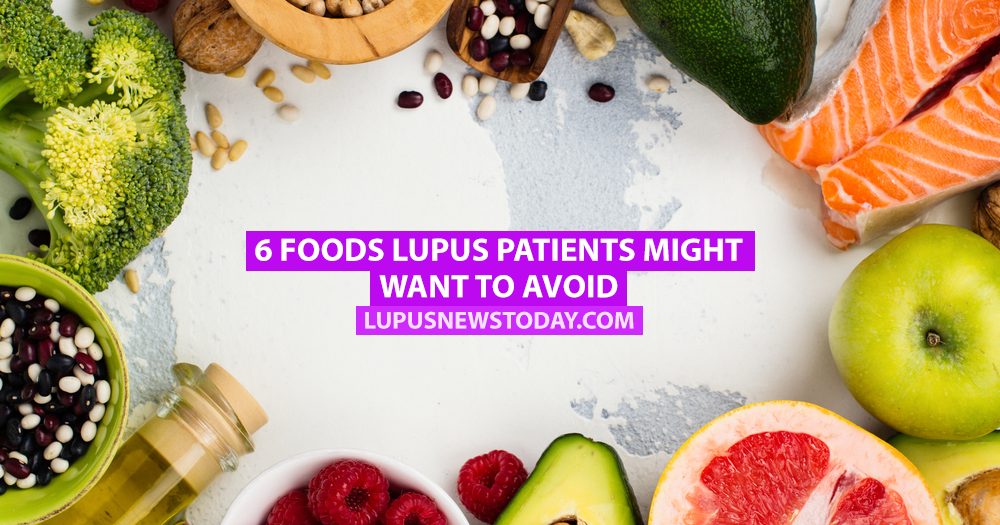6 Foods Lupus Patients Might Want to Avoid
Written by |

Despite what you’ve read, there is no established diet for lupus. There are certain foods that may improve life while living with lupus, and that are certain foods that can worsen your flares and how you feel.
To help you learn a little bit more about what you should and shouldn’t be eating, we’ve put together a list of foods that you might want to avoid if you’re a lupus patient (source: healthline.com):
MORE: Did you know that sugar might trigger a lupus flare?
1. Go from red meat to healthy, fatty fish
Being high in fat, red meat is not the best type of protein to eat, as it can lead to heart disease. Switch from red meat to fatty fishes, like tuna, salmon, sardines and mackerel. These types of fish have plenty of Omega-3s, which are polyunsaturated fatty acids that help protect against heart disease and stroke.
2. Eat foods rich in calcium
Lupus patients may be under medication that can thin their bones as a side effect. Strengthen your bones (and avoid fractures), by eating foods that are high in calcium and vitamin D.
Some of these foods include cheese, yogurt, low-fat milk, tofu, beans, spinach and broccoli (mainly dark green leafy vegetables), among others. Besides eating foods that are high in calcium, ask your physician to prescribe you some vitamin D and calcium supplements.
3. Eat less trans fats and processed foods
OK, let’s be honest: everyone should avoid trans fats and overly processed foods. But if you have a disease like lupus, avoiding these types of foods is even more important and can really benefit your health.
Processed foods that are high in trans fats often have elevated levels of steroids, which can make you hungry all the time, leading you to eat more and as a result, cause you to gain weight.
MORE: Discover nine tips to help you live well with lupus.
4. Try not to eat garlic and alfalfa
If you live with lupus, you should definitely try to avoid these two foods. Why you ask? Garlic contains joene, thiosulfinates and allicin, which can mess with your immune system and trigger lupus flares. The alfalfa contain L-canavanine in its sprouts, and this is an amino acid that can also lead to symptom flares.
5. Skip the booze
You don’t have to give up drinking completely; having a glass of wine or a beer every now and then is OK. Wine can actually benefit your heart health. Despite the benefits, you shouldn’t push it too much when drinking alcohol, since it can interfere with some of the medication you might be taking.
6. Avoid salt
Eating too much salt is not good for anyone, but it’s even worse for lupus patients. Did you know that eating too much salt can raise your blood pressure and increase your risk for heart disease?
But how can you avoid salt, especially when eating out? Whenever you go to a restaurant, try these tips:
- Order your sauces on the side. They are usually high in sodium and if you don’t have them on your dish, you can control the amount you consume.
- Ask for your entrée to be cooked without added salt.
Even though it may seem like it, reducing your salt intake doesn’t mean you have to eat food with no flavor. You can actually substitute salt with other spices to make your food delicious and full of flavor. Use spices like herbs, pepper, curry powder, or try to use lemon and turmeric to give your food a great taste.
MORE: Here are seven recipes for lupus patients you might be interested in.
Lupus News Today is strictly a news and information website about the disease. It does not provide medical advice, diagnosis or treatment. This content is not intended to be a substitute for professional medical advice, diagnosis, or treatment. Always seek the advice of your physician or other qualified health provider with any questions you may have regarding a medical condition. Never disregard professional medical advice or delay in seeking it because of something you have read on this website.




